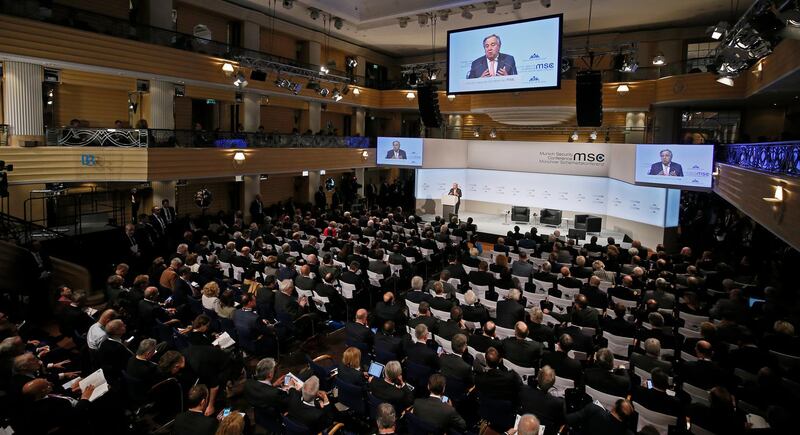The intelligence chiefs of Britain, France and Germany said they won’t allow Brexit to divide them or prevent cooperation on fighting terrorism, an unprecedented public show of unity that also amounted to a rejection of Prime Minister Theresa May’s earlier stance on the issue.
The meeting between Alex Younger of the UK's MI6, Bernard Emie of the French DGSE and Bruno Kahl, head of Germany’s BND, on the fringes of the Munich Security Conference on Friday wasn’t in itself unusual. The remarkable aspect was that they announced it in a press release.
“To have effect, our efforts must be combined in partnership,” they said in a joint statement. “Even after the UK’s exit from the EU, close cooperation and cross-border information-sharing must be taken forward on themes such as international terrorism, illegal migration, proliferation and cyber attacks.”
Mrs May has tried to link British security cooperation to a deal on free trade after the UK leaves the European Union. Her Article 50 letter sent in March 2017, which triggered the Brexit talks, mentioned “security” 11 times and included the line that “failure to reach agreement would mean our cooperation in the fight against crime and terrorism would be weakened.”
________
Read more:
[ UK warned not to use security co-operation as a ‘bargaining chip’ in Brexit talks ]
[ Europe should liaise with the UK on security, not ramp up defence to punish it for Brexit ]
________
By contrast, Britain’s spies have been at great pains to promise their EU counterparts that they’re not going away. Andrew Parker, the head of the domestic security service, MI5, has talked about the need to “invest reassurance time” with European agencies.
Ever since the Brexit vote in 2016, Britain has seen security as something it can offer the EU. It has the second largest defense budget in NATO after the US, and has stationed small numbers of “tripwire” forces in countries along the EU’s eastern frontier to deter Russian aggression.
The U.K.’s intelligence agencies are also in daily contact with European and NATO counterparts as they deal with Islamic radicalization, fighters returning from Middle East conflicts and cyber attacks emanating from countries including Russia and North Korea.
But regardless of their warm words, Brexit does threaten cooperation, particularly if a deal can’t be agreed upon that provides a framework for sharing data across national boundaries. May is likely to discuss the issue when she addresses the Munich conference on Saturday.






